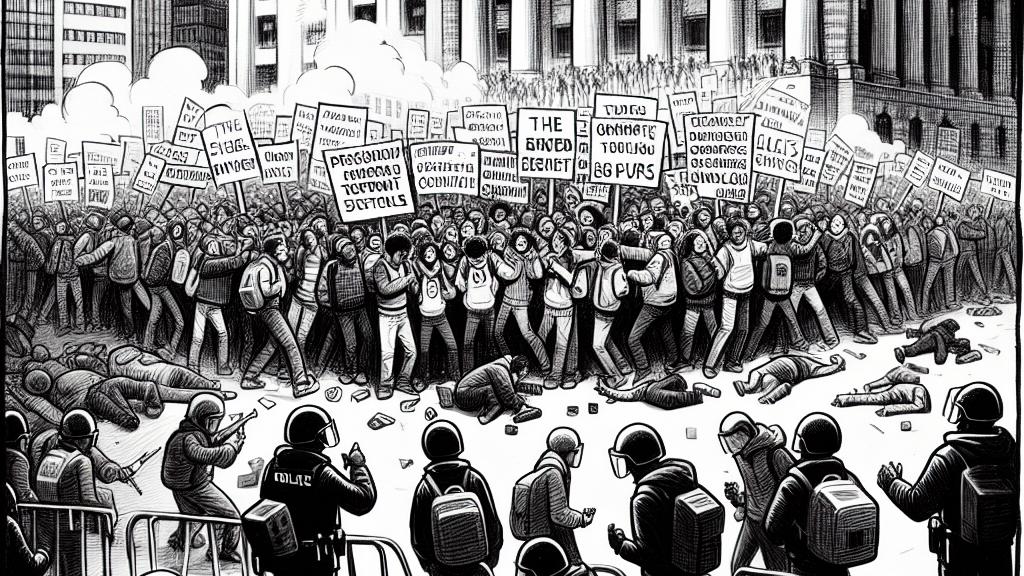Turbulent Times in Bangladesh: The Fall of Jamaat-e-Islami Amidst Student Uprisings!
Overview
- Bangladesh government bans Jamaat-e-Islami and its student wing following violent protests over job quotas.
- Nationwide unrest resulted in over 200 deaths, prompting government crackdowns on dissent.
- The move reflects deep political tensions and challenges to democratic governance in Bangladesh.

Catalyst for Protests: Job Quotas
The unrest in Bangladesh during July 2024 saw thousands of students take to the streets against government job quotas they deemed unfair. Initially started as a localized grievance within universities, these protests rapidly gained momentum, fueled by frustrations over perceived inequalities in the job market and a lack of governmental support. As protests escalated, confrontations with law enforcement led to violent skirmishes, resulting in over 200 fatalities and thousands injured. This civil unrest highlighted not only the discontent among the youth but also the broader societal frustrations with existing governance policies.
The Government's Drastic Response
In the wake of the escalating violence, the Bangladeshi government, led by Prime Minister Sheikh Hasina, enacted a ban on Jamaat-e-Islami and its student arm, Islami Chhatra Shibir, branding them as instigators of unrest. The official narrative positioned Jamaat as a 'militant and terrorist' organization unworthy of political legitimacy, asserting that they manipulated the student protests for their own ends. This significant move, implemented under the Anti-Terrorism Act, demonstrated the government's prioritization of public order over political dissent. However, it simultaneously raised alarm bells regarding freedom of expression and the potential for political repression.
Long-Term Political Implications
This ban marks a pivotal moment in Bangladesh's political landscape, resonating with the nation's fraught history with political dissent and civil rights. With Jamaat-e-Islami historically tied to violent and divisive politics, the government's actions could either quell current tensions or further galvanize opposition groups. The decision likely signals a redirection of youth activism, compelling student movements to adapt and mobilize in creative ways, potentially through digital platforms and grassroots organization. The interplay between government crackdowns and emerging opposition represents a significant turning point that could influence the future of governance and civic engagement in Bangladesh.
The Future of Civic Participation
As this scenario unfolds, the prospects for civic engagement in Bangladesh will likely evolve. The suppression of organizations like Jamaat-e-Islami may not extinguish political rivalries but could instead inspire a more robust and diversified activism among the youth. With growing awareness and use of technology, students and young activists may forge new pathways for resistance against governmental overreach, advocating for transparency, accountability, and their fundamental rights. This dynamic political environment may lead to a broader societal transformation, challenging traditional notions of politics in Bangladesh and fostering a new generation committed to democratic principles.

Loading...